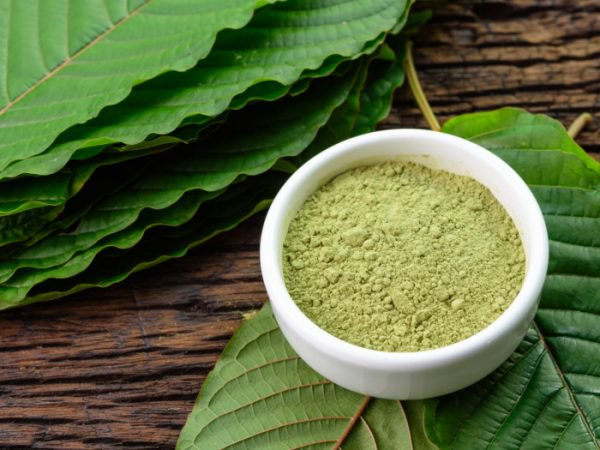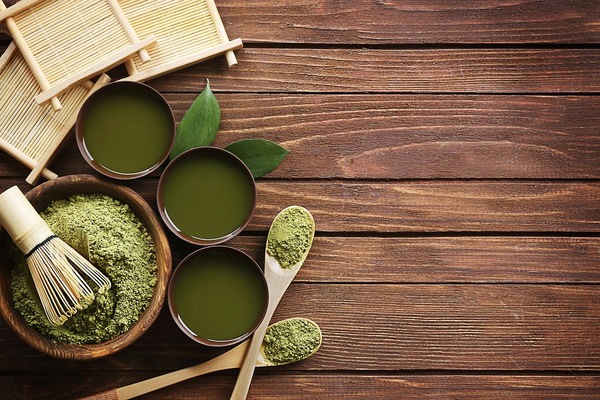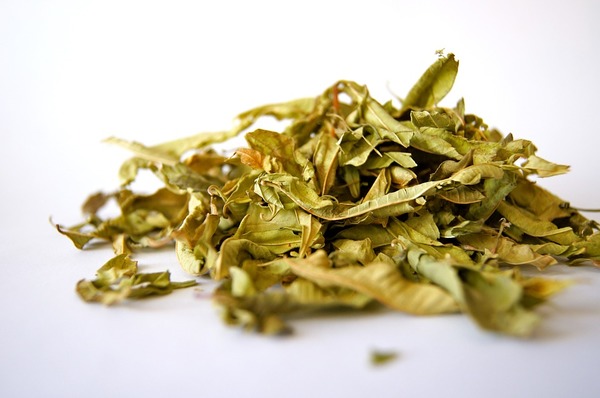Just In
- 4 hrs ago

- 4 hrs ago

- 8 hrs ago

- 15 hrs ago

Don't Miss
- Sports
 Manchester City vs Chelsea LIVE Streaming: Where to Watch FA Cup Semi-Final in India, UK, USA and Other Countries
Manchester City vs Chelsea LIVE Streaming: Where to Watch FA Cup Semi-Final in India, UK, USA and Other Countries - Finance
 1:10 Stock Split: Below Rs 10, Fertilizer Sector Turned Ex-Split; 8,282% Returns In 5 Years
1:10 Stock Split: Below Rs 10, Fertilizer Sector Turned Ex-Split; 8,282% Returns In 5 Years - Movies
 Pukaar Dil Se Dil Tak Promo: Sayli Salunkhe Impresses In First Video Of Sony TV Show, Details About Her Role
Pukaar Dil Se Dil Tak Promo: Sayli Salunkhe Impresses In First Video Of Sony TV Show, Details About Her Role - News
 Chinese President Xi Jinping Orders Biggest Military Reorganisation Since 2015
Chinese President Xi Jinping Orders Biggest Military Reorganisation Since 2015 - Education
 Exam Pressure Does Not Exist; Studying Punctually is Crucial; Says Aditi, the PSEB 2024 Topper
Exam Pressure Does Not Exist; Studying Punctually is Crucial; Says Aditi, the PSEB 2024 Topper - Automobiles
 Suzuki Swift Hatchback Scores 4 Star Safety Rating At JNCAP – ADAS, New Engine & More
Suzuki Swift Hatchback Scores 4 Star Safety Rating At JNCAP – ADAS, New Engine & More - Technology
 Dell Introduces AI-Powered Laptops and Mobile Workstations for Enterprises in India
Dell Introduces AI-Powered Laptops and Mobile Workstations for Enterprises in India - Travel
 Journey From Delhi To Ooty: Top Transport Options And Attractions
Journey From Delhi To Ooty: Top Transport Options And Attractions
10 Lesser Known Health Benefits Of Kratom And Side Effects
Scientifically termed as Mitragyna speciosa, kratom is a tropical tree. The leaves of kratom are widely used for medicinal purposes due to its morphine-like effects for centuries. The plethora of health benefits and medicinal properties possessed by the plant, especially its leaves vary from immunity boosting to inducing healthy sleep. The leaves contain compounds that can have psychotropic (mind-altering) effects, which is the central reason behind the FDA pushing to make kratom illegal [1] .

[Source: Kratomystique]
Kratom leaves are available in the form of pill, capsule, or extract and can be used to brew tea. The fresh leaves can be directly chewed or smoked and added to food. The plethora of benefits possessed by the leaves is due to the presence of unique chemical compounds and nutrients, including a wide range of alkaloids and other organic substances. The primary active alkaloid in kratom, mitragynine is responsible for the opioid-like effects [2] .
Banned in various countries such as Australia, Thailand, Malaysia, and Myanmar due kratom's increased abuse as a recreational drug, the tropical tree has seen a sudden hike in its usage in European and American countries [3] . From being an effective pain reliever to immune booster, kratom leaves are super beneficial for your health, when consumed in the right quantity and manner.
Health Benefits Of Kratom
1. Relieves pain
Possessing analgesic properties, the leaves of the tropical tree can help reduce the pain by affecting your hormonal system. The alkaloids in kratom impact the opiate receptors present in the central nervous system and thereby release enkephalins and endorphins which will help your body reduce the pain [4] .
2. Boosts energy
By optimising certain metabolic processes and impacting your hormone levels, kratom can help increase your energy levels. As it improves the metabolism, your blood circulation will also be increased. Because the combination of an increase in oxygenated blood and increased metabolic activities boosts your energy levels [5] .

[Source: portlandmercury]
3. Improves immunity
Possessing strong antimicrobial and antioxidant properties, kratom can be considered a natural immunity booster. The leaves help improve the resilience of your immune system, thereby providing protection against external toxins, chemicals and diseases [6] .
4. Manages anxiety
Commonly used for soothing your nerves and elevating the mood, kratom leaves are also beneficial in reducing anxiety, stress and help deal with depression [7] . The psychoactive substances in kratom release serotonin and endorphins that can help improve your overall mood as well. Kratom help regulate the hormones in your body and balances the chemical imbalances.
5. Promotes addiction recovery
Although not an opiate, kratom activates the opiate receptors in the brain which bonds with your receptions and help ease the addiction urges. Due to this effect, kratom leaves have been used for curing addiction for hundreds of years [8] . Though kratom leaves have been asserted to be addictive, regularly chewing on kratom leaves provides the person with the ability to 'get clean'.

6. Improves sex life
Used as an aphrodisiac and a fertility booster, kratom leaves' ability to boost energy and promote improved blood circulation accords to this benefit. It helps increase fertility, improves your fertility and boosts the conception rate [9] .
7. Manages diabetes
The alkaloids found in kratom leaves can aid in regulating the amount of insulin and glucose in the blood. This in turn help prevent the sudden hikes in blood sugar levels and also help prevent the onset of diabetes [10] .
8. Promotes heart health
The chemicals present in kratom leaves are asserted to have a positive impact on the functioning of your arteries and blood vessels. It helps reduce your blood pressure and prevent various heart diseases by easing stress. Therefore, kratom leaves provide protection against heart attacks, strokes and atherosclerosis [11] .

9. Better sleep cycle
Known for its therapeutic and mild psychotropic effects, kratom leaves or kratom supplements can help induce sleep. It helps regulate your sleep-wake cycle and can be beneficial for individuals suffering from insomnia, night terrors or parasomnia [12] .
10. Combats diarrhoea
By regulating your parasympathetic nervous system and slowing down peristalsis (wave-like muscle contractions), kratom can be considered an effective cure for diarrhoea [13] . It also helps treat and manage inflammatory bowel diseases like Crohn's disease and ulcerative colitis.
Some of the other health benefits of kratom are that they help lose weight, reduces inflammation, and fights fatigue [11] .
Kratom Tea Recipes
1. Normal tea
Ingredients [12]
- Dried kratom (as desired)
- 2 cups of water
Directions
- Add water to the pot
- Add desired kratom dose
- Simmer for 15 - 45 minutes
2. Kratom lemon honey tea
Ingredients
- The usual dose of kratom powder that you normally take
- 2 cups of water
- Half a lemon
- Honey to taste
Directions
- Fill the pot with water and bring it to boil.
- Lower the heat and add the kratom powder.
- Let it simmer for 15 minutes.
- Add lemon juice and honey and simmer for a few more minutes.
- Remove from heat and strain it.

Side Effects Of Kratom
Some of the adverse reactions the tropical tree leaves have had are as follows [13] :
- Dry mouth
- Loss of appetite
- Sweating
- Itching
- Constipation
- Increased urination
- Nausea
- Seizures
- Hallucinations
Rarely, kratom can cause addiction and dependence due to opioid-like effects. That is, when an individual stops taking kratom, they will have physical withdrawal symptoms such as [14] :
- Hostility
- Insomnia
- Irritability
- Emotional changes
- Jerky movements
- Aggression
- Runny nose
- Muscle aches
- [1] Chittrakarn, S., Keawpradub, N., Sawangjaroen, K., Kansenalak, S., & Janchawee, B. (2010). The neuromuscular blockade produced by pure alkaloid, mitragynine and methanol extract of kratom leaves (Mitragyna speciosa Korth.).Journal of ethnopharmacology,129(3), 344-349.
- [2] Jansen, K. L., & Prast, C. J. (1988). Ethnopharmacology of kratom and the Mitragyna alkaloids.Journal of Ethnopharmacology,23(1), 115-119.
- [3] Babu, K. M., McCurdy, C. R., & Boyer, E. W. (2008). Opioid receptors and legal highs: Salvia divinorum and Kratom.Clinical Toxicology,46(2), 146-152.
- [4] Arndt, T., Claussen, U., Güssregen, B., Schröfel, S., Stürzer, B., Werle, A., & Wolf, G. (2011). Kratom alkaloids and O-desmethyltramadol in urine of a “Krypton” herbal mixture consumer.Forensic science international,208(1-3), 47-52.
- [5] Tanguay, P. (2011). Kratom in Thailand.Available at SSRN 1908849.
- [6] Tungtananuwat, W., & Lawanprasert, S. (2010). Fatal 4x100; home-made kratom juice cocktail.Journal of Health Research,24(1), 43-47.
- [7] Swogger, M. T., & Walsh, Z. (2018). Kratom use and mental health: A systematic review.Drug and Alcohol Dependence,183, 134-140.
- [8] Fluyau, D., & Revadigar, N. (2017). Biochemical benefits, diagnosis, and clinical risks evaluation of kratom.Frontiers in psychiatry,8, 62.
- [9] Henningfield, J. E., Fant, R. V., & Wang, D. W. (2018). The abuse potential of kratom according the 8 factors of the controlled substances act: implications for regulation and research.Psychopharmacology,235(2), 573-589.
- [10] Warner, M. L., Kaufman, N. C., & Grundmann, O. (2016). The pharmacology and toxicology of kratom: from traditional herb to drug of abuse.International journal of legal medicine,130(1), 127-138.
- [11] White, C. M. (2018). Pharmacologic and clinical assessment of kratom.The Bulletin of the American Society of Hospital Pharmacists,75(5), 261-267.
- [12] Speciosa Guide. (2019, January 08). 5 Kratom Tea Recipes You Should Try [Blog post]. Retrieved from, https://speciosaguide.com/5-kratom-tea-recipes-try/
- [13] Fluyau, D., & Revadigar, N. (2017). Biochemical benefits, diagnosis, and clinical risks evaluation of kratom.Frontiers in psychiatry,8, 62.
- [14] Swogger, M. T., Hart, E., Erowid, F., Erowid, E., Trabold, N., Yee, K., ... & Walsh, Z. (2015). Experiences of kratom users: a qualitative analysis.Journal of psychoactive Drugs,47(5), 360-367.
-
 healthAmul’s New Protein Product For Gym-Goers And Vegetarians: Know More About ‘Super Milk’
healthAmul’s New Protein Product For Gym-Goers And Vegetarians: Know More About ‘Super Milk’ -
 wellnessHeadache After Drinking Red Wine? This May Be The Reason!
wellnessHeadache After Drinking Red Wine? This May Be The Reason! -
 healthRelieve Day-to-Day Stress Like Shilpa Shetty With A Tennis Ball!
healthRelieve Day-to-Day Stress Like Shilpa Shetty With A Tennis Ball! -
 healthGet Your Groove On: 5 Health Benefits Of Dancing To Afro Beats
healthGet Your Groove On: 5 Health Benefits Of Dancing To Afro Beats -
 wellnessMilind Soman Birthday: The 'Made In India' Actor's Lunch Is The Best Way To Add Veggies To Your Diet
wellnessMilind Soman Birthday: The 'Made In India' Actor's Lunch Is The Best Way To Add Veggies To Your Diet -
 healthWorld Sandwich Day: 4 Indian-born Sandwiches You Must Try!
healthWorld Sandwich Day: 4 Indian-born Sandwiches You Must Try! -
 healthDurga Puja Special: Why You Should Eat Hilsa Fish (Macher Raja) At least Once A Week
healthDurga Puja Special: Why You Should Eat Hilsa Fish (Macher Raja) At least Once A Week -
 health5 Natural Viagra Alternatives For Women
health5 Natural Viagra Alternatives For Women -
 healthChew These 4 Foods For A Defined Jawline
healthChew These 4 Foods For A Defined Jawline -
 wellnessInternational Gin And Tonic Day 2023: Interesting Benefits Of Gin That Will Definitely Surprise You!
wellnessInternational Gin And Tonic Day 2023: Interesting Benefits Of Gin That Will Definitely Surprise You! -
 healthBoost Your Health with Beetroot: Health Benefits And Ways To Add The Colourful Veggie In Your Diet
healthBoost Your Health with Beetroot: Health Benefits And Ways To Add The Colourful Veggie In Your Diet -
 insync3 Super Bizarre Uses For Eggs You Definitely Didn’t Know!
insync3 Super Bizarre Uses For Eggs You Definitely Didn’t Know!


 Click it and Unblock the Notifications
Click it and Unblock the Notifications



